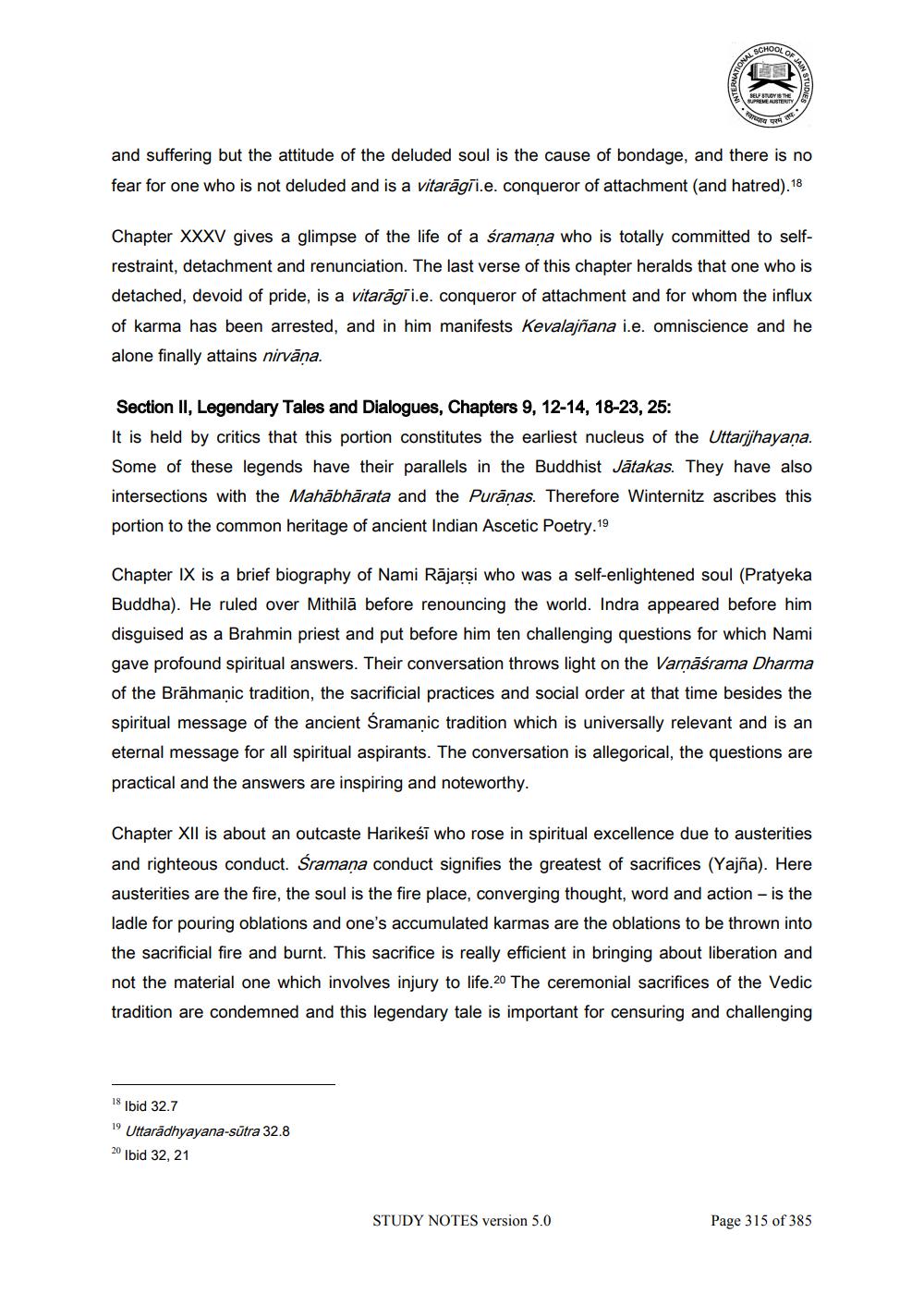________________
INTERNATIO
SCHOOL
18
OF
Ibid 32.7
(XI)
and suffering but the attitude of the deluded soul is the cause of bondage, and there is no fear for one who is not deluded and is a vitaragii.e. conqueror of attachment (and hatred). 18
19 Uttaradhyayana-sūtra 32.8
20 Ibid 32, 21
SUPREME AUSTERITY
Farenga
Chapter XXXV gives a glimpse of the life of a śramana who is totally committed to selfrestraint, detachment and renunciation. The last verse of this chapter heralds that one who is detached, devoid of pride, is a vitaragii.e. conqueror of attachment and for whom the influx of karma has been arrested, and in him manifests Kevalajñana i.e. omniscience and he alone finally attains nirvāṇa.
STUDY NOTES version 5.0
SELF STUDY IS THE
Section II, Legendary Tales and Dialogues, Chapters 9, 12-14, 18-23, 25:
It is held by critics that this portion constitutes the earliest nucleus of the Uttarjjhayana. Some of these legends have their parallels in the Buddhist Jātakas. They have also intersections with the Mahabharata and the Purāṇas. Therefore Winternitz ascribes this portion to the common heritage of ancient Indian Ascetic Poetry.19
STUDIES
Chapter IX is a brief biography of Nami Räjarsi who was a self-enlightened soul (Pratyeka Buddha). He ruled over Mithila before renouncing the world. Indra appeared before him disguised as a Brahmin priest and put before him ten challenging questions for which Nami gave profound spiritual answers. Their conversation throws light on the Varṇāśrama Dharma of the Brahmanic tradition, the sacrificial practices and social order at that time besides the spiritual message of the ancient Śramanic tradition which is universally relevant and is an eternal message for all spiritual aspirants. The conversation is allegorical, the questions are practical and the answers are inspiring and noteworthy.
Chapter XII is about an outcaste Harikeśī who rose in spiritual excellence due to austerities and righteous conduct. Śramana conduct signifies the greatest of sacrifices (Yajña). Here austerities are the fire, the soul is the fire place, converging thought, word and action - is the ladle for pouring oblations and one's accumulated karmas are the oblations to be thrown into the sacrificial fire and burnt. This sacrifice is really efficient in bringing about liberation and not the material one which involves injury to life.20 The ceremonial sacrifices of the Vedic tradition are condemned and this legendary tale is important for censuring and challenging
Page 315 of 385




